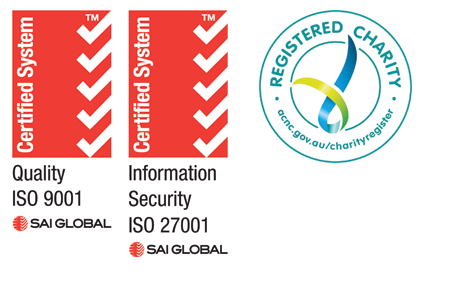Mental health: moving forward in a fluid system
Pictured: Hayley Tasker, Senior Strategic Designer for Today Agency (Image credit: Today Agency)
The mental health sector continues to evolve, informed by reforms from the Australian and Victorian governments. New initiatives, such as the Medicare Mental Health telephone service, and Mental Health and Wellbeing Locals, alongside rising demand and complexity, means existing services must continue to adapt their focus to maximise capacity and reduce duplication.
Throughout these reforms, NWMPHN’s focus has remained absolute: ensuring equitable access to support for people experiencing mental ill health. We have done this by ensuring that existing services we commission remain viable and accessible, while working closely with the consumers and the sector to design new ones.
An example that combines these themes is our review and redesign of the mental health stepped care system. This project combines insight from consumer experience feedback, our internal project working and advisory groups, independent qualitative research from design agency Today, and input from service providers and users.
The redesign aims to strengthen the stepped care model so it better reflects people’s needs and preferences in how they access and experience care. It also addresses complex system challenges by encouraging innovation in how care is organised, measured and coordinated to be more responsive to people’s broader needs.
Another capacity-building initiative, codesigned with GPs, paediatricians, pharmacists and people with lived experience, is helping GPs better support children with an existing diagnosis of attention deficit hyperactivity disorder (ADHD) who require medication management.
The ADHD Shared Care Pilot provides targeted education and clinical support, enabling them to conduct six-monthly care and medication reviews for children under the care of Royal Children’s Hospital paediatricians. This allows families to access ongoing ADHD care closer to home, with their regular GP, while freeing up paediatricians to see new patients, thus improving access across the system.
The initiative is being evaluated by Murdoch Children’s Research Institute to assess its feasibility and impact on accessibility and wait times.
Other initiatives this financial year have focused on youth mental health, new parents with alcohol and other drug dependencies, recovery from addiction, LGBTIQA+ mental health services, psychological therapies for older adults, and eating disorders.
This reflects NWMPHN’s ongoing commitment to evolving and responding to the needs of our community.
Pages in this section
Mental health and wellbeing
NWMPHN commissions and funds mental health services across its catchment and beyond. It also provides a vital conduit enabling smooth connections between providers and clients, in the right places at the right times.
Pictured: A local resident in Queens Park, Moonee Ponds. (Image credit: Leigh Henningham)
Alcohol and other drugs
Support for people with alcohol or drug challenges is multifaceted and culturally constrained. NWMPHN works with communities to optimise responses.
Pictured: Anh Bui, Mental Health and Wellbeing Coordinator at the Australian Vietnamese Women’s Association (Image credit: Jasper Company Pictures)
Targeted mental health programs
Effective mental ill health responses are conditioned and constrained by factors such as age, location and culture. NWMPHN is committed to building programs that work for each cohort.
Pictured: Jade Barber (L), manager of the LGBTIQA+ mentoring project and Elle, participant. (Image credit: Mike Keating)



